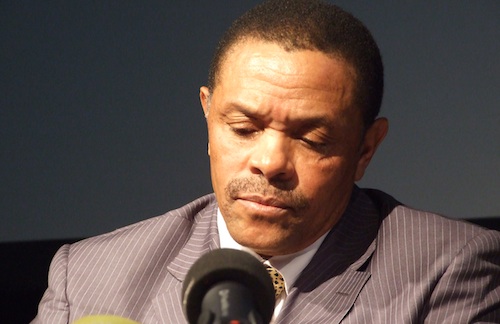
Interconnection rates are coming down. SA’s three mobile operators, MTN, Vodacom and Cell C, have agreed to cut the peak rate they charge other operators to carry calls on their networks by 36c, from R1,25/minute to 89c/minute.
Communications minister Siphiwe Nyanda, pictured, made the announcement in parliament on Thursday evening.
The cuts will take effect from 1 February 2010 in the case of Vodacom and Cell C, and from 1 March 2010 in the case of MTN. It was not immediately clear why MTN required an additional month before it could offer the lower rates to other operators.
The off-peak rate of 77c/minute remains unchanged, Nyanda says.
The minister says the agreement will put “money back in the pockets of ordinary South Africans who need it now more than ever”.
“I’m glad to report that the mobile operators have agreed to introduce new and affordable retail products based on their reduced rates, from 1 December 2009,” Nyanda says.
“I have been assured these developments will introduce more competition in the retail market. That on its own is the big early Christmas and Easter present we can give to the nation.”
Nyanda stresses that the agreement is “within the business imperatives of these operators and is voluntary”.
He says further that he is withdrawing a ministerial directive to the Independent Communications Authority of SA (Icasa), in which he had instructed the regulatory body to reduce interconnection rates by the end of November.
ECN Telecommunications CEO John Holdsworth, who has spearheaded the fight against high interconnection fees, has welcomed the reduction in the peak rate.
However, he says he is disappointed that there has not also been a commensurate reduction in the off-peak rate.
“[The peak-rate reduction] is not enough to see material reductions in retail prices, but … as an opening gambit it’s not bad,” Holdsworth says, adding that he wants to see the rate reduced further from next year through regulatory intervention.
Icasa will continue developing the framework that will allow it to regulate the rates formally. It has promised to have this framework in place by June 2010.
Nyanda says any further reduction of rates will be managed within the regulatory framework.
“In addition to this process, I will be reviewing all other aspects that relate to the cost of communication,” he says. “This includes fixed and mobile termination rates for public phones and community service phones [and] is in line with my programme of action to reduce the cost to communicate that was recently submitted to and approved by cabinet.”
Nyanda says reducing communications costs remains a top priority of the department of communications. “For this reason, I have elevated it to our medium-term strategic framework.” — Duncan McLeod, TechCentral




